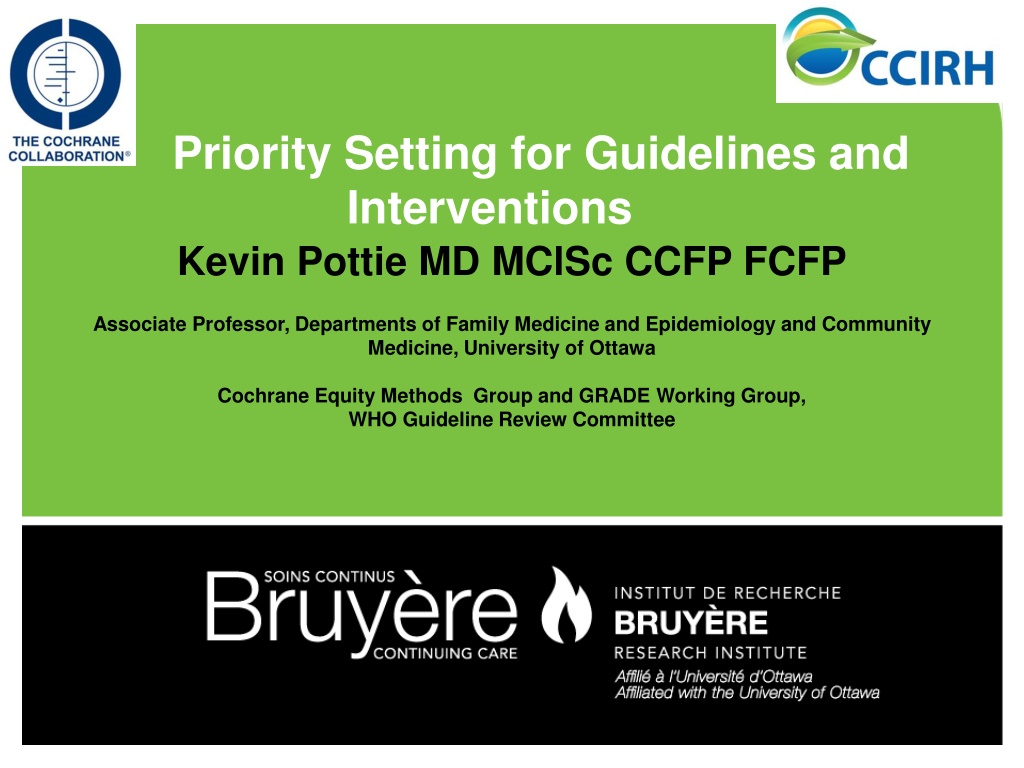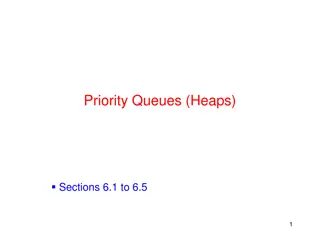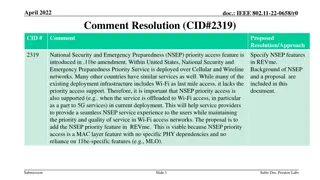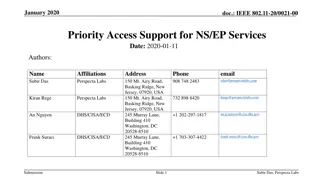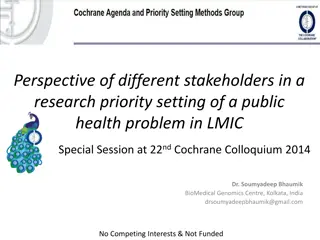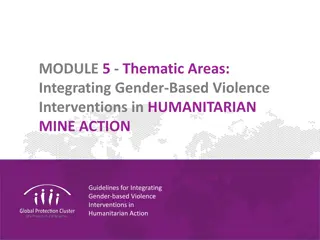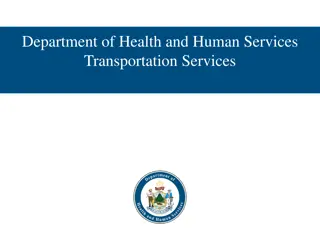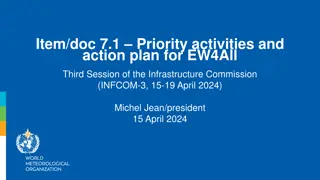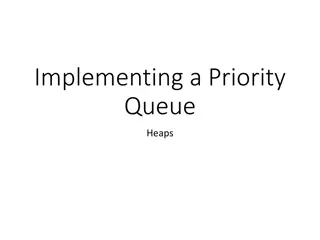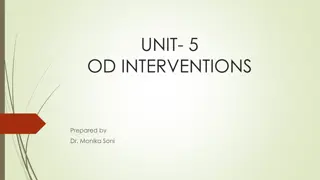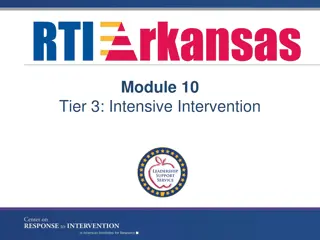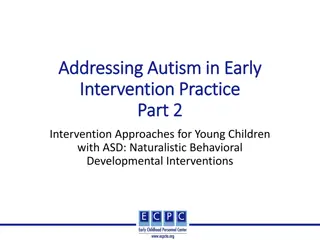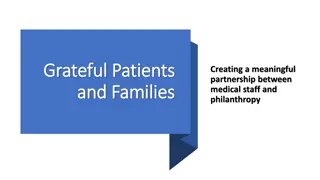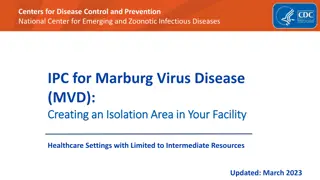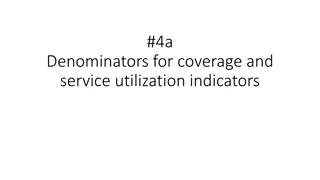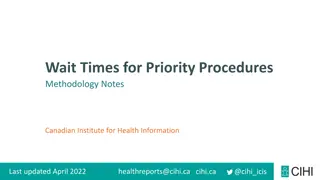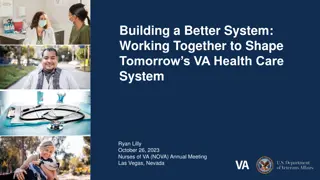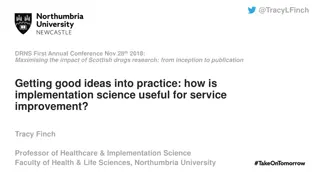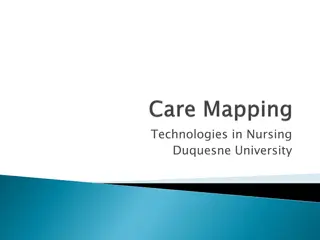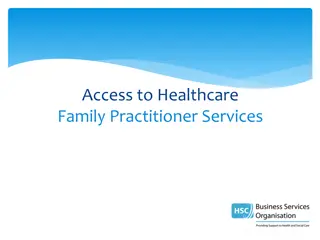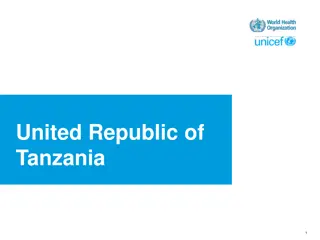Priority Setting for Guidelines and Interventions in Healthcare
Setting priorities in healthcare guidelines is crucial to ensure relevance, engagement, and cost-effectiveness. This involves stakeholder engagement, explicit recommendation development, and addressing gaps in the health system, particularly for refugees and immigrants. The Delphi selection process is highlighted for importance, usefulness, and disparity, with priority topics including infectious diseases, mental health, chronic conditions, and more.
Download Presentation

Please find below an Image/Link to download the presentation.
The content on the website is provided AS IS for your information and personal use only. It may not be sold, licensed, or shared on other websites without obtaining consent from the author. Download presentation by click this link. If you encounter any issues during the download, it is possible that the publisher has removed the file from their server.
E N D
Presentation Transcript
Priority Setting for Guidelines and Interventions Kevin Pottie MD MClSc CCFP FCFP Associate Professor, Departments of Family Medicine and Epidemiology and Community Medicine, University of Ottawa Cochrane Equity Methods Group and GRADE Working Group, WHO Guideline Review Committee
Background Setting priorities is critical to ensure guidelines are relevant and acceptable to users, and that time, resources and expertise are used cost- effectively in their development. Stakeholder engagement and the use of an explicit procedure for developing recommendations are critical components in this process.
\ Photo Credit: International Organization for Migration and WHO 3
4 Where are the gaps in the health system ? Why does it occur (risk factors)? How How do refugees do refugees differ from the differ from the Local Local population? population? What health system interventions might be most relevant and most feasible ? Does doing this cost more than that? Will immigrants accept it?
Priority Setting: Delphi Selection Process Importance Usefulness Disparity (Oxman et al WHO priority setting 2006)
Priority Topics for Evidence Based Guidelines Infectious Diseases MMR/DPTP-HIB Varicella (Chicken Pox) Hepatitis B* Tuberculosis* HIV/ AIDS* Hepatitis C Intestinal Parasites* Malaria Mental Health and Maltreatment Depression * Post Traumatic Stress Disorder* Child Maltreatment* Intimate Partner Violence * Other Chronic Disease Diabetes* Dental disease* Contraception Cervical Cervix/HPV Iron Deficiency Anemia* Vision Disorders Pottie K, Greenaway C, Feightner J, et al . Evidence Based Clinical Guidelines for Immigrants and Refugees. CMAJ 2011
Delphi Process Carefully select participants, you want a near 100% response rate Importance of scoping reviews to inform and define initial list of conditions, more can be added Value of priority criteria, sharing results on ranking, and role of 3-4 ranking sessions
Selection of Priorities for Guidelines Preventable and treatable, but often-neglected, health conditions were selected for the development of guidelines for immigrant populations made vulnerable because of health system bias. Although infectious disease continues to be important, mental health and chronic diseases have emerged as areas of concern in the care of recently arriving immigrants and refugees.
To identify and prioritize innovative strategies to address the health concerns of vulnerable migrants language interpretation comprehensive interdisciplinary care, evidence-based guidelines* training and mentorship for practitioners intersectoral collaboration immigrant community engagement* 93% response rate Pottie et al Can Fam Physician 2013
Rejecting and accepting international migrant patients into primary care practices Mixed methods, Delphi + 10 interviews Reasons to reject: communication challenges, high hassle factor fear of financial loss, limited knowledge of migrant medicine Reasons to accept: feeling useful, migrant health education, third party support, learning from other cultures, experience working overseas Moto et al. International J of Migration Health and Social Care -under review
Thank You! Questions?
